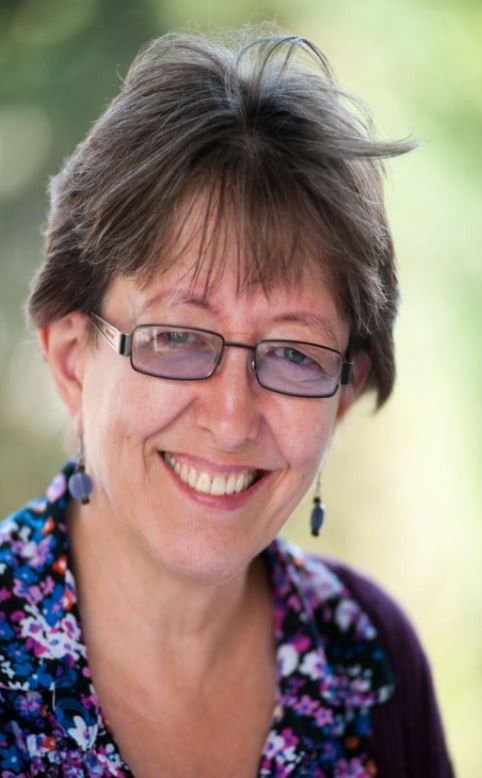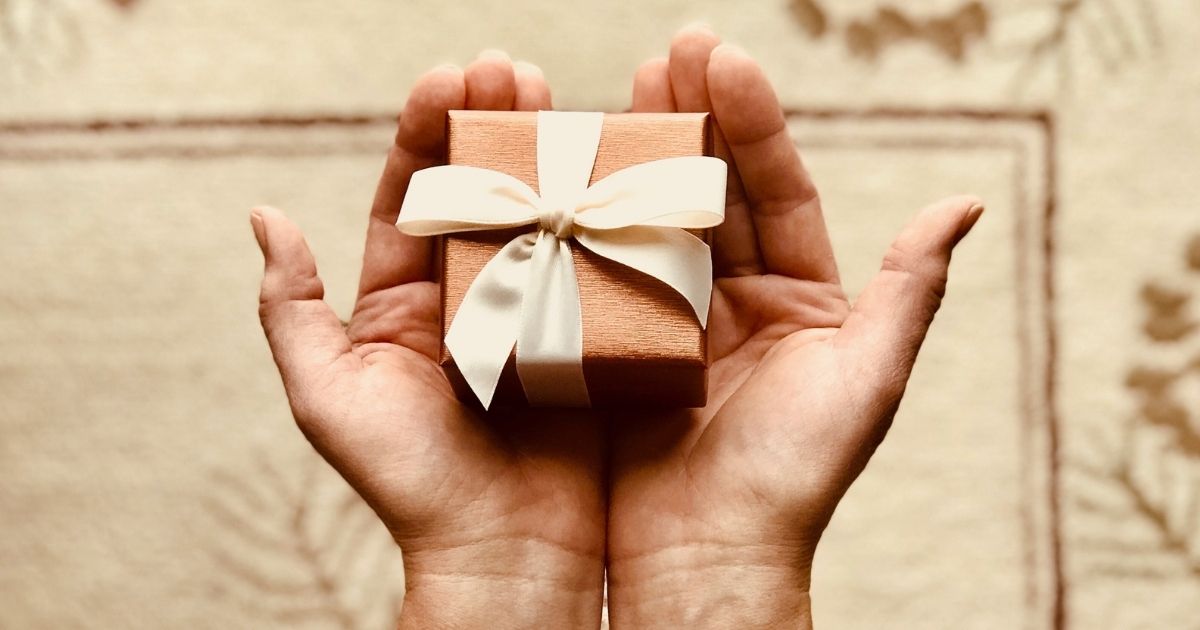Optimists see the silver lining in the dark clouds. Creative people people make lemonade out of lemons. Determined people make that lemonade – then sell it and share it. Meet my friend Laura Mather.
by Laura Mather
Noisy workplace
Sudden onset hearing loss
Family genetics predisposed to more hearing loss
Cochlear implant
Near-total bilateral deafness

Laura Mather
The above is the bare bones timeline of how I became profoundly hard of hearing, covering a period of 30 plus years of gradually discovering the gift of hearing loss. Because it is a gift to have a challenge to rise to, to develop compensatory skills that replace cues that used to be provided by my ears, in order to tell what is happening in the world.
My hearing loss has gifted me with heightened lipreading skills, greater body (kinetic) awareness of environmental cues, and a super-developed attention span – with the ability to stay engaged during long conversations by guessing what word comes next, what makes sense given what has already happened, and focusing on all the tiny details that make up audio communication – including that smallish part which is the actual spoken word.
Hearing loss has taken me places I never realized I wanted to go – sharing my story with others, morphing from being a user of personal assistive listening devices to turning that knowledge into a career supporting businesses to create ‘Hearing Friendly’ workplaces and client communication.
When I started my business, POW Hearing, I asked myself: “Do I want my life’s work to be about fixing people’s attitudes towards hearing loss, and fighting for understanding and support in the workplace, marketplace, and community for people who, like me, have audio accessibility needs?” “Do I want to spend my energies in the ‘disability’ field, working with ‘The Hearing Impaired’?”
No, I didn’t. I would rather work with businesses that already understand their role in providing an accessible place to work in and communicate with their clients. In this way, I support individuals who have hearing loss by creating opportunity for engagement where before there was none.
I don’t use the terms ‘the disabled’ or ‘the hearing impaired’ because having hearing loss is not synonymous with being a disabled person. Hearing loss only becomes a disability if a person is disadvantaged by not being able to fully understand and engage. With the right supports, everyone, regardless of hearing ability, can communicate fully and not be at a disadvantage. Additionally, I believe the term ‘impaired’ is a negative and self-limiting label.
Developing my hearing loss ‘gift’
I was born with perfect hearing, but I didn’t appreciate how special this was until it was gone. And it would be awhile before I learned to see my progressive, late-onset hearing loss as a gift.
At 21 years of age, after not protecting my hearing while working in a noisy carpet factory, I immediately lost 25% hearing in both ears. It was no big thing being slightly hard of hearing – or so I thought.
But by age 30, when I started university, I struggled. Receiving audio information in real time, understanding new concepts clearly, using new knowledge, and retaining it – was exhausting! Prioritizing became a full-time job, along with finding hearing access supports and funding (i.e., self advocating), employing support staff, and finding enough hours in the day to transcribe literally every tape-recorded lecture during my first year of school. Hearing had become hard work and education is not easy when you can’t hear audio information.
Later, as a mom of two young children, my hearing loss was becoming worse – probably due to genetics – as all of my uncles have those high-end hearing aids! It became challenging to understand what my children were saying. They weren’t old enough to spell, or to “say another word with the same meaning for mummy, please”. By the time they were 8 and 6, I literally couldn’t take my eyes off them, because as my hearing deteriorated, I become more dependent on my speechreading skills.
Audio accessibility career by default
When I decided to re-enter the workforce, I realized that customers didn’t like having their space invaded when I got close to hear them, and they expected me to understand all spoken words, no matter how fast or which direction they came from. With my hearing loss progressing, the best solution was a cochlear implant.
In September of 2008, I was implanted, and suddenly either I or my conversation partner could turn away while talking, because I could (mostly) understand their words! In 2009 I completed a post-graduate degree; graduating top of my class in HR Management.
Today, I wouldn’t be helping businesses to provide audio accessibility – ‘Hearing ‘Friendly’ spaces – if I myself had not been shut out of the conversation. No one wanted to hire me after graduating in 2009 – they only wanted to ask me what I could NOT do, given my hearing loss. I decided to take my hearing loss gifts and pay it forward. Using my lived experience, and business knowledge of audio accessibility through the Accessibility for Ontarians with Disabilities Act (AODA), I started my business creating ‘Hearing Friendly’ workplaces and customer service environments.
I am thankful everyday for my hearing loss, the experiences life has given me as I navigate life in a hearing world, and the opportunity to share what I have learned. Hearing loss has truly been a gift that keeps on giving.
Laura Mather lives in Toronto. She has over 30 years of navigating hearing loss and lipreading








Thank you for this positive story! These stories can’t be told often enough.
I have to disagree with this statement: “[H]aving hearing loss is not synonymous with being a disabled person. Hearing loss only becomes a disability if a person is disadvantaged by not being able to fully understand and engage.” That may be true for most people with myopia because their vision can be perfect with glasses. But since hearing aids don’t provide the same level of correction, I wish people with hearing loss WOULD consider themselves disabled. Maybe then they would request accommodations so we would have as many loops as there are ramps.
Carol, you make a good point about advocacy – it’s essential to moving forward.
Laura, good to read that your positive attitude continues. Keep up the good work!
Some people make a distinction between “disability” and “handicap.” A disability is a mental or physical condition. I have a CI, but I don’t have normal hearing; I’m disabled. (It took a long time for me to be able to say that.) A handicap is something that prevents normal functioning. A person without the use of legs is disabled, but if there are ramps and elevators, they are not handicapped. I’m not handicapped when I am talking in a quiet room to someone who is speaking clearly. My CI removes some, but not all, of my handicap. Your work is removing handicaps. Thank you. I was excited to read the title of your post, hoping to find something positive in losing my hearing late in life, something that would compensate for the many frustrations of my daily life. Thank you for posting, but it doesn’t work for me.
Hearing loss is one of the worse disadvantages a person can have.